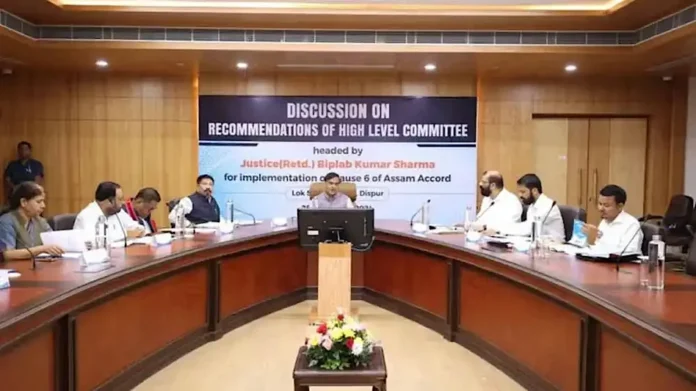Guwahati, Sept 26: The Assam government plans to implement the recommendations from the Biplab Kumar Sarma committee report concerning Clause 6 of the Assam Accord, while specifically excluding the Barak Valley and Sixth Schedule regions.
The Barak Valley, which is predominantly Bengali-speaking, presents potential challenges for the recommendations’ implementation, prompting the government to keep it outside the report’s scope, an official said on Thursday.
Moreover, regions governed by the Sixth Schedule, including the Bodoland Territorial Council, Dima Hasao Autonomous District Council, and Karbi Anglong Autonomous District Council, will also be excluded. The Sixth Schedule offers protections for tribal communities through autonomous governance in states like Assam, Meghalaya, Tripura, and Mizoram.
Chief Minister Himanta Biswa Sarma recently met with representatives from the All Assam Students Union (AASU) to discuss the committee’s findings. Sarma noted, “We had thorough discussions about the Biplab Kumar Sarma committee report, which includes 67 recommendations. Out of these, 40 fall under the state government’s jurisdiction, 12 require cooperation between the state and central governments, and the rest need central action.”
He indicated that AASU leaders agreed with the state’s approach and that an action plan will be prepared. “We will draft an action plan based on the committee’s recommendations and present it to AASU on October 25, coinciding with another meeting with student leaders,” Sarma added.
The Assam Accord, signed following a six-year agitation from 1979 to 1985, stipulates that all foreigners who entered the state after March 24, 1971, will be deported, regardless of their religious affiliation. Clause 6 aims to establish constitutional, legislative, and administrative safeguards to protect the cultural, social, and linguistic identity of the Assamese people.


